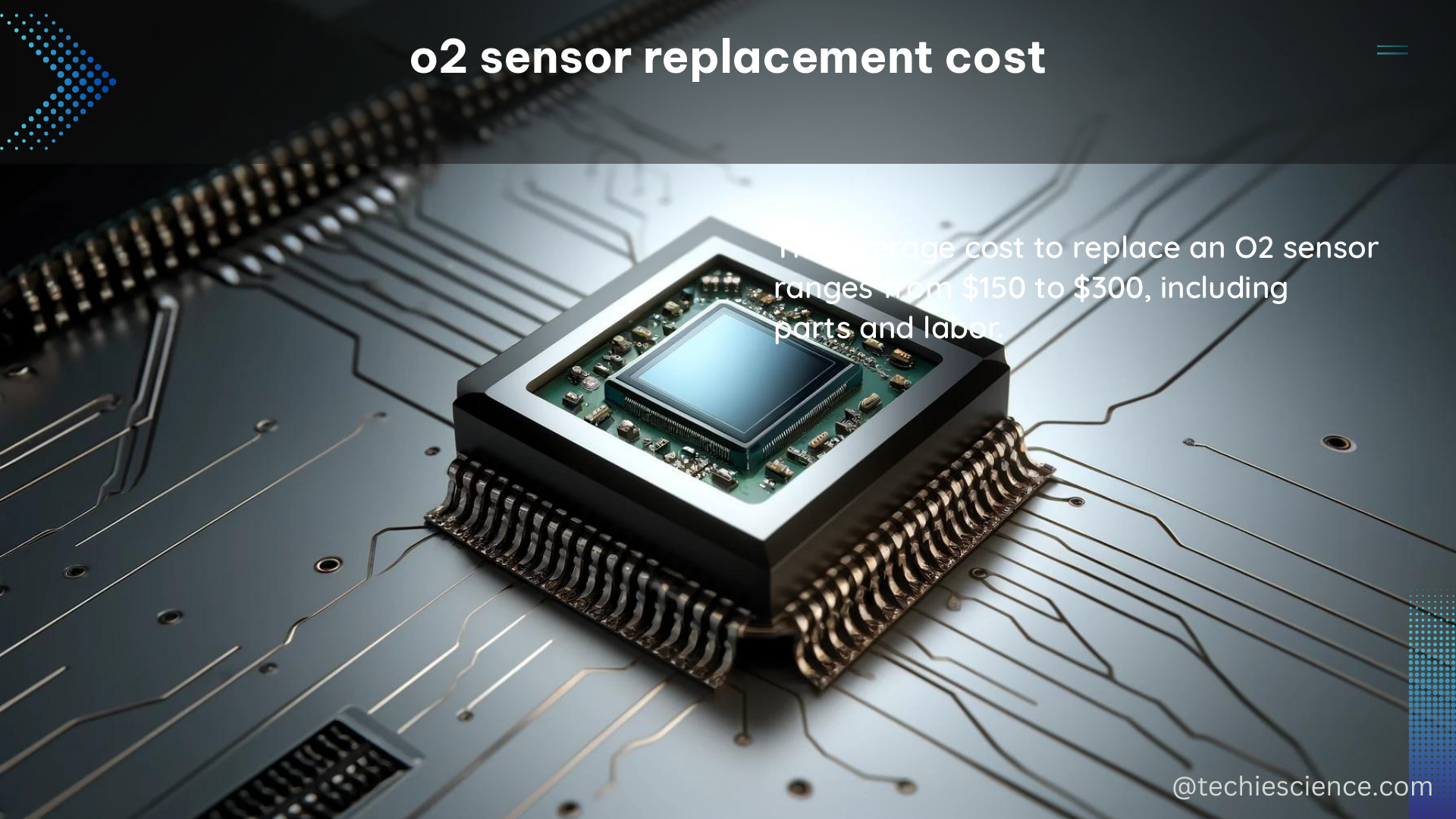The cost of replacing an oxygen sensor, commonly referred to as an O2 sensor, can vary significantly depending on the make and model of the vehicle, as well as the labor costs associated with the replacement. On average, the cost for an Oxygen Sensor Replacement can range between $362 and $412, with labor costs estimated between $63 and $79 and parts priced between $300 and $333. However, these costs can vary, and for a more accurate estimate based on your location and specific vehicle, it is recommended to use a Fair Price Estimator.
Understanding the Factors that Influence O2 Sensor Replacement Cost
Vehicle Make and Model
The cost of an O2 sensor replacement can vary significantly depending on the make and model of the vehicle. Luxury and high-performance vehicles, such as BMWs, Mercedes-Benz, and Audis, tend to have more expensive O2 sensors, with prices ranging from $150 to $300 per sensor. On the other hand, more common and affordable vehicles, such as Toyota, Honda, and Ford, typically have O2 sensors that cost between $50 and $150 per sensor.
Sensor Location
The location of the O2 sensor within the vehicle’s exhaust system can also impact the replacement cost. Sensors that are more easily accessible, such as those located near the front of the vehicle, may be less expensive to replace than those that are more difficult to access, such as those located near the rear of the vehicle or in tight spaces.
Sensor Type
There are several different types of O2 sensors, each with its own unique design and functionality. The most common types are the Zirconia (or Zirconium) sensor and the Titanium sensor. Zirconia sensors are generally less expensive, ranging from $20 to $85, while Titanium sensors can cost between $100 and $300.
Labor Costs
The labor costs associated with an O2 sensor replacement can also vary significantly. On average, labor costs can range from $63 to $79, but this can be higher or lower depending on the complexity of the job and the hourly rate of the mechanic. Some factors that can influence labor costs include the accessibility of the sensor, the need for specialized tools, and the time required to complete the replacement.
Brand and Quality
The brand and quality of the replacement O2 sensor can also impact the overall cost. Aftermarket sensors from reputable brands like Denso, NGK, and Bosch can range from $20 to $180, while original equipment manufacturer (OEM) sensors from the vehicle’s manufacturer can cost between $100 and $300.
Preparing for an O2 Sensor Replacement

Before attempting an O2 sensor replacement, it’s important to have the necessary tools and equipment on hand. This may include:
- Long socket wrenches (typically 12mm or 14mm)
- Penetrant spray (such as PB Blaster) to help loosen the sensor if it’s stuck
- Torque wrench to ensure the sensor is tightened to the proper specification
- Scan tool or code reader to diagnose the problem and verify the replacement
It’s also important to have a good understanding of the vehicle’s exhaust system and the location of the O2 sensor(s). This can help ensure the replacement is done correctly and safely.
Potential Consequences of Ignoring a Faulty O2 Sensor
Ignoring a faulty O2 sensor can lead to a variety of issues, including:
- Decreased fuel efficiency: A faulty O2 sensor can cause the engine to run too rich or too lean, leading to decreased fuel efficiency and higher fuel costs.
- Engine misfiring or hesitation: A faulty O2 sensor can cause the engine to misfire or hesitate, leading to a rough idle and reduced performance.
- Stalling or idling issues: A faulty O2 sensor can cause the engine to stall or idle roughly, which can be a safety concern.
- Emissions test failure: A faulty O2 sensor can cause the vehicle to fail an emissions test, leading to costly fines and repairs.
- Catalytic converter damage: Ignoring a faulty O2 sensor can ultimately lead to damage to the catalytic converter, which can be an extremely expensive repair.
Conclusion
The cost of replacing an O2 sensor can vary significantly depending on a variety of factors, including the make and model of the vehicle, the sensor location, the sensor type, labor costs, and the brand and quality of the replacement sensor. While it is possible to replace an O2 sensor as a DIY project, it’s important to have the necessary tools and knowledge to ensure the job is done correctly and safely. Ignoring a faulty O2 sensor can lead to a variety of issues, including decreased fuel efficiency, engine performance problems, and even damage to the catalytic converter, so it’s important to address the issue promptly.
References:
– RepairPal O2 Sensor Replacement Cost Estimator
– Bridwell Auto Center – Oxygen Sensor Replacement Costs 2022
– Reddit Discussion – Mechanic Advice Needed: O2 Sensor Replacement Cost

The lambdageeks.com Core SME Team is a group of experienced subject matter experts from diverse scientific and technical fields including Physics, Chemistry, Technology,Electronics & Electrical Engineering, Automotive, Mechanical Engineering. Our team collaborates to create high-quality, well-researched articles on a wide range of science and technology topics for the lambdageeks.com website.
All Our Senior SME are having more than 7 Years of experience in the respective fields . They are either Working Industry Professionals or assocaited With different Universities. Refer Our Authors Page to get to know About our Core SMEs.